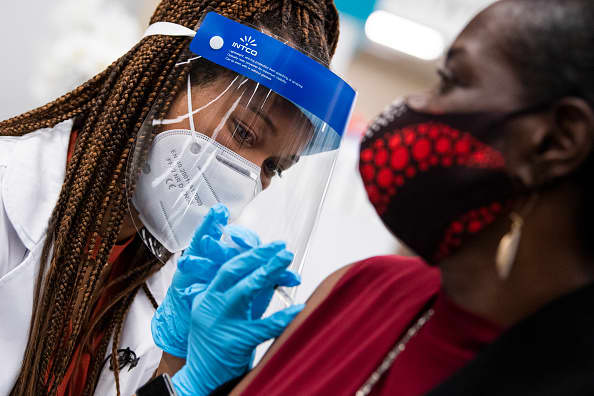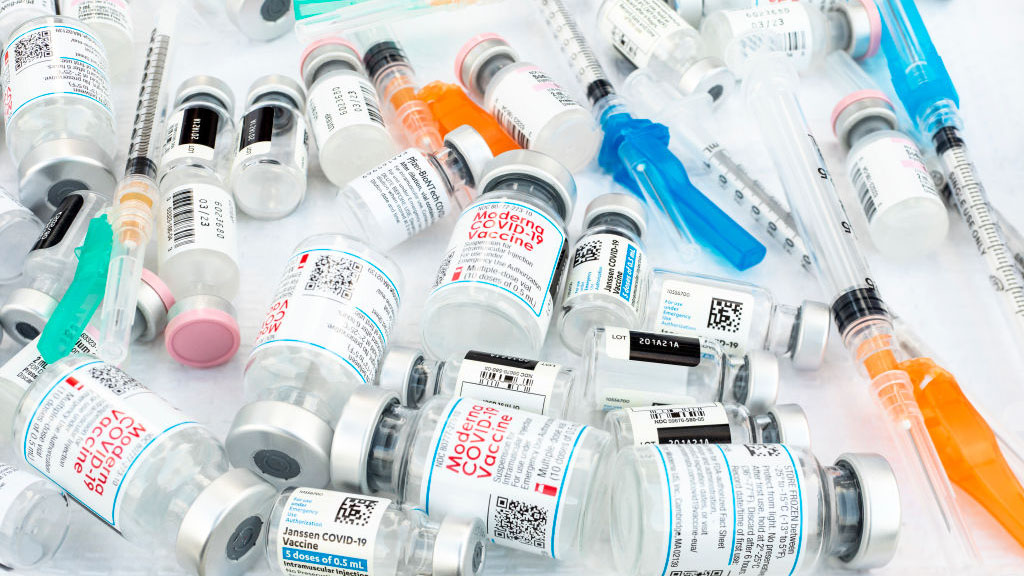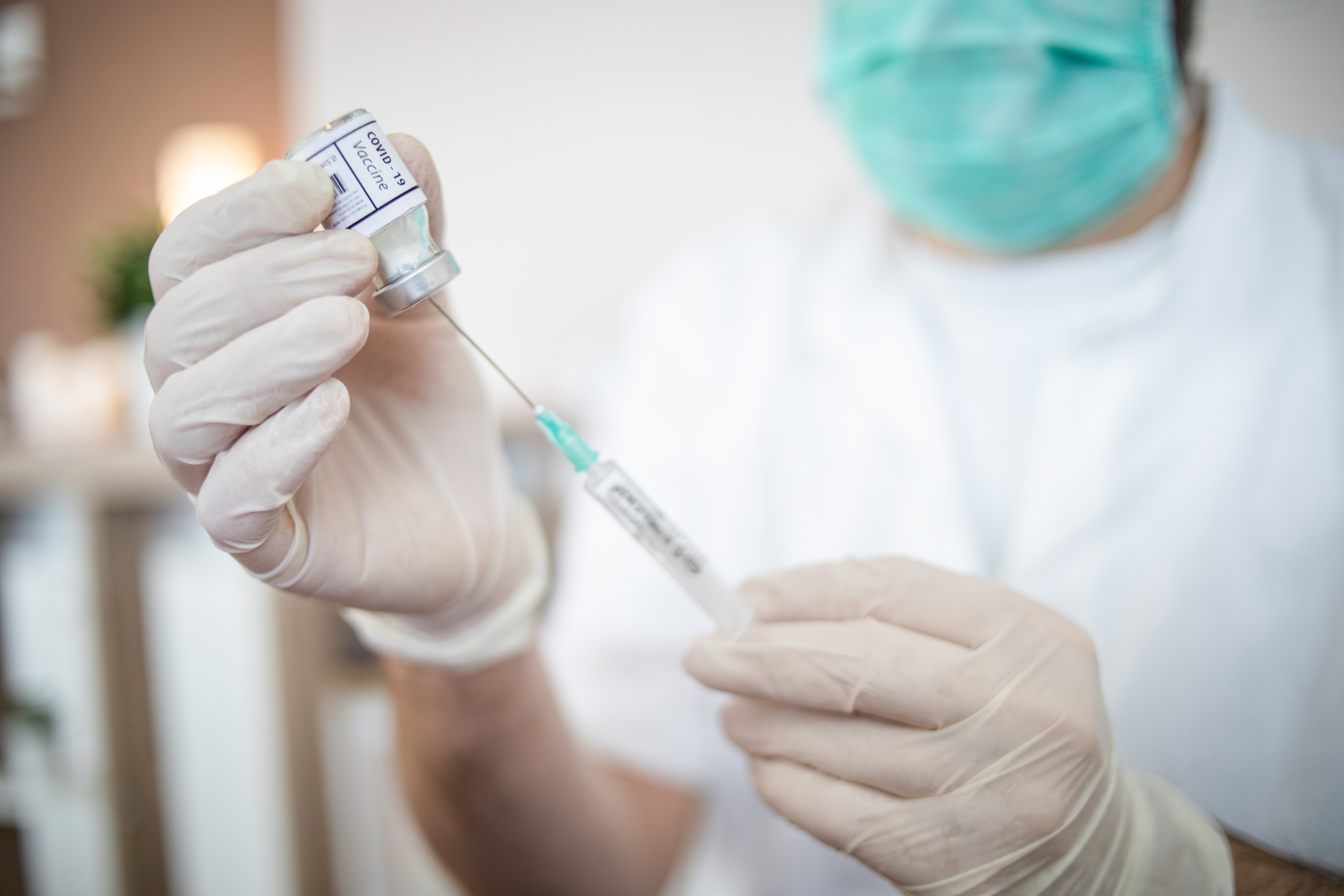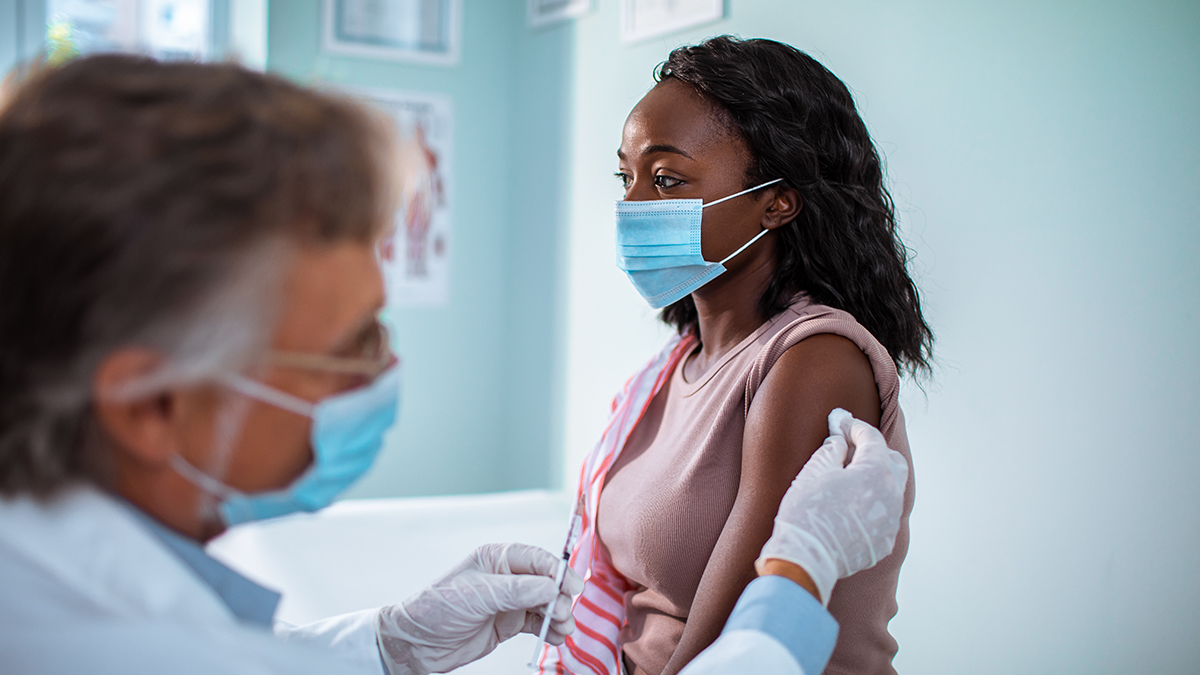With booster shot eligibility potentially expanding to even more U.S. adults, what can those who have yet to receive their extra dose expect?
An influential U.S. advisory panel will discuss expanding eligibility for COVID-19 vaccine booster shots to all adults Friday, a move that could make the shots available as early as this weekend.
The panel advises the Centers for Disease Control and Prevention in setting vaccination recommendations for U.S. doctors and the general public.
Last week, Pfizer asked U.S. regulators to allow boosters of its COVID-19 vaccine for anyone 18 or older.
Moderna also refiled its application to the FDA on Wednesday to approve vaccine booster doses for all adults ages 18 and older.
Boosters are now recommended for people who initially received their second Pfizer or Moderna shots at least six months ago if they’re 65 or older or are at high risk of COVID-19 because of health problems or their job or living conditions. Boosters are also recommended for people who received the single-dose Johnson & Johnson vaccine at least two months ago.
While all three vaccines used in the U.S. continue to offer strong protection against severe COVID-19 illness and death, the shots’ effectiveness against milder infection can wane over time.
Here's what you need to know:
What Could Happen This Week?
An influential U.S. advisory panel will discuss expanding eligibility for COVID-19 vaccine booster shots to all adults Friday, a move that could make the shots available as early as this weekend.
Feeling out of the loop? We'll catch you up on the Chicago news you need to know. Sign up for the weekly Chicago Catch-Up newsletter here.
The panel advises the Centers for Disease Control and Prevention in setting vaccination recommendations for U.S. doctors and the general public.
Last week, Pfizer asked U.S. regulators to allow boosters of its COVID-19 vaccine for anyone 18 or older.
The Food and Drug Administration is expected to sign off on Pfizer's application before the advisory panel meets Friday. The final step — CDC's official recommendation — could come soon after the meeting.
Moderna also refiled its application to the FDA on Wednesday to approve vaccine booster doses for all adults ages 18 and older, though a decision isn't likely to be made before the panel discussion.
Who is Currently Eligible for Booster Shots?
Booster shots of either Pfizer or Moderna have been authorized for seniors and others at high risk from COVID-19 because of their health problems, jobs or living conditions — six months after their last shot.
Moderna’s booster is half the dose that’s used for the first two shots.
As for recipients of the single-shot J&J vaccine, a COVID-19 booster is recommended for everyone at least two months after their vaccination. That's because the J&J vaccine hasn't proved as protective as the two-dose Moderna or Pfizer options.
Nearly 31 million Americans have received a dose beyond their original vaccination, including those with weakened immune systems, such as cancer patients and organ transplant recipients who need an extra dose to be fully vaccinated.
Some cities and states already allow all adults to get boosters of Pfizer's vaccine, but it is not yet official U.S. policy. In the last week, California, New Mexico, Arkansas, West Virginia and Colorado expanded the shots to all adults. New York City made a similar move.
Here's a complete breakdown of who is eligible so far, according to the CDC:
- People 65 years and older and residents in long-term care settings should receive a booster shot of Pfizer-BioNTech’s COVID-19 vaccine at least 6 months after their Pfizer-BioNTech primary series,
- People aged 50–64 years with underlying medical conditions should receive a booster shot of Pfizer-BioNTech’s COVID-19 vaccine atleast 6 months after their Pfizer-BioNTech primary series,
- People aged 18–49 years with underlying medical conditions may receive a booster shot of Pfizer-BioNTech’s COVID-19 vaccine at least 6 months after their Pfizer-BioNTech primary series, based on their individual benefits and risks, and
- People aged 18-64 years who are at increased risk for COVID-19 exposure and transmission because of occupational or institutional setting may receive a booster shot of Pfizer-BioNTech’s COVID-19 vaccine at least 6 months after their Pfizer-BioNTech primary series, based on their individual benefits and risks.
What counts as a qualifying underlying health condition? Here's a list from the CDC:
- Cancer
- Chronic kidney disease
- Chronic lung diseases, including COPD, asthma (moderate-to-severe), interstitial lung disease, cystic fibrosis, and pulmonary hypertension
- Dementia or other neurological conditions
- Diabetes (type 1 or type 2)
- Down syndrome
- Heart conditions (such as heart failure, coronary artery disease, cardiomyopathies or hypertension)
- HIV infection
- Immunocompromised state (weakened immune system)
- Liver disease
- Overweight and obesity
- Pregnancy
- Sickle cell disease or thalassemia
- Smoking, current or former
- Solid organ or blood stem cell transplant
- Stroke or cerebrovascular disease, which affects blood flow to the brain
- Substance use disorders
In addition to the Pfizer authorization, officials have also cleared booster doses of both the Pfizer and Moderna vaccines for people with weakened immune systems.
According to the CDC, immunocompromised groups include people who have:
- Been receiving active cancer treatment for tumors or cancers of the blood
- Received an organ transplant and are taking medicine to suppress the immune system
- Received a stem cell transplant within the last 2 years or are taking medicine to suppress the immune system
- Moderate or severe primary immunodeficiency (such as DiGeorge syndrome, Wiskott-Aldrich syndrome)
- Advanced or untreated HIV infection
- Active treatment with high-dose corticosteroids or other drugs that may suppress your immune response
The agency notes that "people should talk to their healthcare provider about their medical condition, and whether getting an additional dose is appropriate for them."
Which Booster Shot Should You Get?
The CDC didn't explicitly recommend anyone get a different brand than they started with but left open the option — saying only that a booster of some sort was recommended.
Federal regulators have recommended getting the same shot as your first dose for booster doses, particularly for those who got an mRNA vaccine. Moderna's booster dose will be half of its original dosing, while Pfizer's booster shot is the same as the initial doses.
Some advisers, however, said they would prefer that J&J recipients receive a competitor's booster, citing preliminary data from an ongoing government study that suggested a bigger boost in virus-fighting antibodies from that combination.
"If you got Johnson and Johnson, I have been advising folks if they got J&J, depending on the reason they chose J&J the first time, if they're going to get that booster I've been recommending getting likely one of the mRNA series - the Moderna or the Pfizer," Chicago Department of Public Health Commissioner Dr. Allison Arwady said. "That's where we saw the biggest increase in antibodies in the studies."
What Are the Most Common Side Effects of COVID Booster Shots?
According to the Centers for Disease Control and Prevention, symptoms of the booster appear to largely mirror how people felt after their second dose.
The side effects were mostly considered mild or moderate, and arm pain, fatigue and headache were the most commonly reported symptoms after the third shot.
The most common side effects reported after getting a third shot of an mRNA vaccine, the type made by Moderna and Pfizer, were pain at the injection site, fatigue, muscle pain, headache and fever, followed by chills and nausea, according to CDC data.
The data available for J&J was more limited, but people reported fever, fatigue and headache after receiving a second dose of that vaccine, according to the agency.
Information provided was based on submissions to the CDC's text messaging system v-safe and the Vaccine Adverse Event Reporting System, a national vaccine safety surveillance program.





